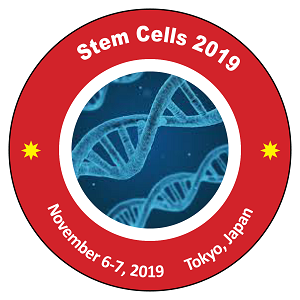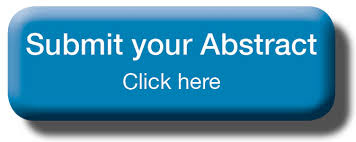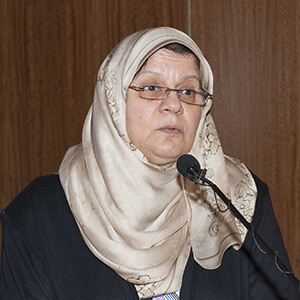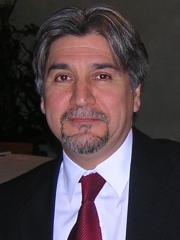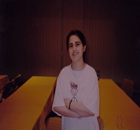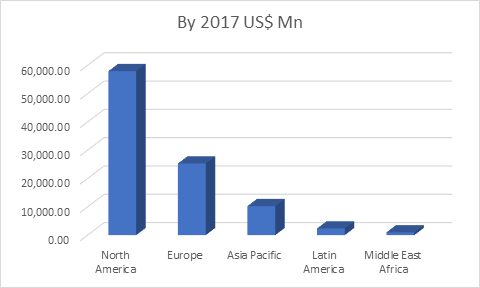Renowned Speakers
We’ve invited the top most influential speakers from around the world to give inspirational talks and lead practical workshops.
Conference Information
Welcome Message
Pulsus Conferences is thrilled to welcome you to Tokyo to take part and share in the International Conference on Stem Cells and Regenerative Medicine to be held from 06-07 November 2019 in Tokyo, Japan.
Stem Cells 2019 is the best place to explore new and innovative ideas as presentations and oral talks by various researchers across the globe, which helps you to nourish your knowledge in the respective field.
Stem Cells 2019 gathers all the researchers directly linked with the field of Stem cells and regenerative medicine along with its associated fields; which provides an erudite platform for the students, professors, lecturers, speakers, scholars, researchers, consultants and industry professionals to frame new network and strengthen their knowledge.
Our main goal is to bring together established scientists, young investigators, researchers and businesspeople in a broad range of academic and industry and to foster useful exchanges of concepts and methods among the researchers.
We encourage you to stay connected during Stem Cells 2019, keep us proactive and support us to shape the future of Stem Cells and Regenerative Medicine.
Looking forward to meeting you all in Tokyo City in 2019!
Regards
Organizing Committee
Stem Cells 2019
About Conference
It is our pleasure to announce the onset of the Conference on Stem cells and Regenerative medicine during November 06-07 in Tokyo, Japan.
Stem Cells 2019 will be organized with the theme “Novel Techniques in Stem Cells & Regenerative Medicine”. The two-day conference program includes prompt keynote presentations, Workshops, Oral talks, Poster presentations and Exhibitions.
This conference gathers people from academia, business and societies interested in stem cells, with the aim of spreading the knowledge, awareness, and education about the recent advancement in the Stem Cell Research and the development of new treatments to cure various diseased conditions.
This conference will address crucial points on stem cells and its techniques, which in turn helps to treat numerous disorders. It provides the spectrum of opportunities for the Universities and Institutes and members of the association to have networking and to share their eminent thoughts.
Stem cell 2019 also invites Young investigators at every career stage to submit abstracts broadcasting their latest scientific findings in oral and poster sessions. Interested participants can confirm their participation by registering for the conference and sending the abstracts, along with their colleagues.
We invite you to join us at the Stem Cells 2019, to enjoy the scientific discussions in this unique platform which is accompanied by the global potential scientists and researchers in the field of Stem Cells and Regenerative Medicine.
We look forward to seeing you at Tokyo, Japan.
Why to attend?
To harmonize the interdisciplinary and to update Scientific Intelligence in the field of the Stem Cells and Regenerative medicine
Benefits of attending the conference:
This Stem Cells and Regenerative Medicine conference covers a huge topic on Stem cells and regenerative medicine, Stem Cell Biology, Tissue Regeneration, Therapeutic Cloning, Stem Cell therapy, Stem cell Banking, Stem Cell Transplantation, Regenerative Medicine and Novel Stem Cell Technologies.
- Exclusive Hearing and Panel discussions on latest innovations
- Lectures by the active Investigators
- Keynote forums by Renowned Scientists
- Speaker Colloquium
- Poster Sessions on latest modernization in all the relevant Areas
- A broad track of exhibitors to reveal the advancing and current technologies.
- Build Your Scientific Knowledge Base
- Expand Your Resources
- Meet Esteemed Experts and Influencers Face to Face
- Break Out of Your Comfort Zone
- Explore yourself among this tremendously growing scientific world
- Young Scientist Award for best blooming young research
- Learn New Tips & Tactics
- Learn how to take advantage of the current Stem Cell market to maintain and grow your business from the leading experts in the field of stem cells.
Targeted Audience
Research Scholars, Scientists, Geneticists, Microbiologists, Genetic Engineers, Tissue Engineers, Stem Cell Biologists, Biotechnologists, Tissue Specialists, Stem Cell Association Heads and Members, Professors, Students, Stem Cell Associates and Stem Cell Line Companies are the Targeted Audience.
Conference Highlights:
- Stem cells and its application in future
- Novel Stem cell technology
- Stem cell biology & epigenetics
- Stem cells niche
- Stem cell markers
- Stem Cell Biology and Genetics
- Stem cell therapy
- Stem cell transplantation
- Ageing- Stem cell connection
- Stem cells in auto immune diseases
- Stem cells and diabetes
- Stem cell & Nanotechnology
- Stem cell culture and Bioprocess
- Stem cell apoptosis
- Targeted drug delivery
- Therapeutic cloning
- Bio banking
- Regenerative medicine
- Regenerative treatment models
- Tissue regeneration using nanotechnology
- Biomaterials and stem cells
- Scaffolds in regenerative medicine
- Rare disorder treatment
- Ethical issues
Scientific Sessions
Session on: Stem cells and its application in future
Nowadays, stem cells are used in varied field researches, due to its capability to proliferate and differentiate into any kind of cell that is desired for. Because of the incredible power and versatility of the stem cells, these are hoped to have a better future in research. The astonishing progress in the field of stem cell research has laid the foundation for cell based therapies for diseases which cannot be cured by conventional medicine.
Related: Stem Cells Congress | Stem Cells Conference | Stem Cells Event | Stem Cells Summit | Stem Cells Meetings
3rd Advances in Cell & Stem Cell Research Congress, September 25-26, 2019, Rome, Italy, International Conference on Tissue Science & Regenerative Medicine, November 06-07, 2019, Tokyo, Japan, 27th International Conference on Cancer Research and Oncology, December 9-10, 2019 , Barcelona, Spain
Related Associations: International Society for Stem Cell Research, Euro Stem Cell, French Society for Stem Cell Research, German Society for Stem Cell Research, Norwegian Centre for Stem Cell Research, California Institute for Regenerative Medicine, New York State Stem Cell Science Program, New York Stem Cell Foundation, Stem Cell Network
Session on: Novel stem cell technology
Stem cell technology is a rapidly flourishing field that fuses the work of cell researcher, geneticists, and clinicians, and provides valuable and innovative technique or approaches that is used to treat both lives threatening and non-dangerous disorders. Thus, many researches have been performed in this field, with the hope of producing results that would dominate the scientific field in the forthcoming years.
Related: Stem Cells Congress | Stem Cells Conference | Stem Cells Event | Stem Cells Summit | Stem Cells Meetings
3rd Advances in Cell & Stem Cell Research Congress, September 25-26, 2019, Rome, Italy, International Conference on Tissue Science & Regenerative Medicine, November 06-07, 2019, Tokyo, Japan, 27th International Conference on Cancer Research and Oncology, December 9-10, 2019 , Barcelona, Spain
Related Associations: Australian Society for Stem Cell Research, Japanese Society for Regenerative Medicine, Korean Society for Stem Cell Research, Stem Cell Society Singapore, Stem Cells Australia, Taiwan Society for Stem Cell Research, The National Stem Cell Foundation of Australia, Israel Stem Cell Society, Danish Stem Cell Society
Session on: Stem cell biology and Epigenetics
Stem cells are a specific type of cell that can differentiate into many types of specialized cells within the body. There are three primary types of stem cells namely – embryonic stem cells, adult stem cells and induced pluripotent stem cells. Epigenetics is the study of inborn changes in organisms caused by modification of gene expression rather than alteration of the genetic code itself. Three systems namely DNA methylation, histone modification and non-coding RNA associated gene silencing are presently considered to initiate and sustain any kind of epigenetic change. Epigenetic modifications can illustrate manner by which cells terminally differentiate to end up as skin cells, liver cells, brain cells, etc. or, epigenetic change can have more detrimental effects which can even result in diseases like cancer.
Related: Stem Cells Congress | Stem Cells Conference | Stem Cells Event | Stem Cells Summit | Stem Cells Meetings
3rd Advances in Cell & Stem Cell Research Congress, September 25-26, 2019, Rome, Italy, International Conference on Tissue Science & Regenerative Medicine, November 06-07, 2019, Tokyo, Japan, 27th International Conference on Cancer Research and Oncology, December 9-10, 2019 , Barcelona, Spain
Related Associations: International Society for Stem Cell Research, Australian Society for Stem Cell Research, Korean Society for Stem Cell Research, Stem Cell Society Singapore, Stem Cells Australia, Taiwan Society for Stem Cell Research, The National Stem Cell Foundation of Australia, Israel Stem Cell Society, Danish Stem Cell Society, Euro Stem Cell, French Society for Stem Cell Research
Session on: Stem Cells Niche
Recent research has shown that stem cell fates are controlled by their specialized microenvironment, which referred to as the stem cell niche. A stem cell niche is a tissue area which provides a specific micro environment, within which stem cells are present in an undifferentiated and self-renewable state. Cells of the stem cell niche interact with the stem cells via direct cell-cell interactions or by emitting molecular signals from the niche; thereby maintaining the stem cells or promoting their differentiation.
Related: Stem Cells Congress | Stem Cells Conference | Stem Cells Event | Stem Cells Summit | Stem Cells Meetings
3rd Advances in Cell & Stem Cell Research Congress, September 25-26, 2019, Rome, Italy, International Conference on Tissue Science & Regenerative Medicine, November 06-07, 2019, Tokyo, Japan, 27th International Conference on Cancer Research and Oncology, December 9-10, 2019 , Barcelona, Spain
Related Associations: Taiwan Society for Stem Cell Research, The National Stem Cell Foundation of Australia, Israel Stem Cell Society, Danish Stem Cell Society, Euro Stem Cell, French Society for Stem Cell Research, German Society for Stem Cell Research, Norwegian Centre for Stem Cell Research, Stem Cell Network North Rhine – Westphalia
Session on: Stem Cell Markers
Stem cells have the capacity to propagate and generate additional stem cells and can differentiate into distinct progenitor cells which further develop along specialized lineages. These Stem cell markers allows for the identification and isolation of stem cells in different types of tissues and cell populations. Such markers allow us for the identification of different types of stem cells such as embryonic, hematopoietic, mesenchymal/stromal and neural stem cells based on the markers that are present on its surface.
Related: Stem Cells Congress | Stem Cells Conference | Stem Cells Event | Stem Cells Summit | Stem Cells Meetings
3rd Advances in Cell & Stem Cell Research Congress, September 25-26, 2019, Rome, Italy, International Conference on Tissue Science & Regenerative Medicine, November 06-07, 2019, Tokyo, Japan, 27th International Conference on Cancer Research and Oncology, December 9-10, 2019 , Barcelona, Spain
Related Associations: French Society for Stem Cell Research, German Society for Stem Cell Research, Norwegian Centre for Stem Cell Research, Stem Cell Network North Rhine – Westphalia, California Institute for Regenerative Medicine, State Stem Cell Science Program, New York Stem Cell Foundation, Stem Cell Network
Session on: Stem Cell Biology and Genetics
Stem cell genomics analyses the genomes of stem cells. The study of stem cell genomics has wide reaching implications in the study of stem cell biology and likely therapeutic usages of stem cells. Application of research in this field could lead to drug discovery and information on diseases by the molecular characterization of the pluripotent stem cell through DNA and transcriptome sequencing and looking at the epigenetic changes of stem cells and subsequent products. One step in that process is single cell phenotypic analysis and the connection between the phenotype and genotype of specific stem cells.
Related: Stem Cells Congress | Stem Cells Conference | Stem Cells Event | Stem Cells Summit | Stem Cells Meetings
3rd Advances in Cell & Stem Cell Research Congress, September 25-26, 2019, Rome, Italy, International Conference on Tissue Science & Regenerative Medicine, November 06-07, 2019, Tokyo, Japan, 27th International Conference on Cancer Research and Oncology, December 9-10, 2019 , Barcelona, Spain
Related Associations: International Society for Stem Cell Research, Australian Society for Stem Cell Research, International Association of Nanotechnology, Japanese Society for Regenerative Medicine, Korean Society for Stem Cell Research, Stem Cell Society Singapore, Stem Cells Australia, Taiwan Society for Stem Cell Research, The National Stem Cell Foundation of Australia
Session on: Stem Cell Therapy
Stem Cell Therapy (SCT) is the treatment adapted to cure various disorders, from non-serious to life threatening, by using stem cells. These stem cells can be obtained from different sources and used to possibly treat more than 80 disorders, counting neuromuscular and degenerative disorders. Hematopoietic disorders which affect bone marrow and signify with various systemic complications, can be cured by collecting the stem cells from donor and incorporating it in the patient; as a result, which is said to reconstitute the defective bone marrow and permanently overcome the disorder. So, Stem cells have great potential in tissue regeneration and tissue repair but needs to be thoroughly studied about their biology, manipulation and safety before their full therapeutic potential can be attained.
Related: Stem Cells Congress | Stem Cells Conference | Stem Cells Event | Stem Cells Summit | Stem Cells Meetings
3rd Advances in Cell & Stem Cell Research Congress, September 25-26, 2019, Rome, Italy, International Conference on Tissue Science & Regenerative Medicine, November 06-07, 2019, Tokyo, Japan, 27th International Conference on Cancer Research and Oncology, December 9-10, 2019 , Barcelona, Spain
Related Associations: International Society for Stem Cell Research, Australian Society for Stem Cell Research, Japanese Society for Regenerative Medicine, Korean Society for Stem Cell Research, Stem Cell Society Singapore, Stem Cells Australia, Taiwan Society for Stem Cell Research, The National Stem Cell Foundation of Australia, Israel Stem Cell Society
Session on: Stem Cell Transplantation
Stem cells are continuously breaking down and developing into different types of blood cells, replacing the older blood cells present in the body. Healthy stem cells are always needed in the body for us to live. Stem Cell Transplantation (SCT) is a method in which a patient receives healthy stem cells to replace the flawed stem cells. Before SCT, the patient is subjected to high doses of chemotherapy which prepares the body for transplantation. When the stem cells are incorporated into the patient’s blood stream, they travel to the bone marrow and initiates the process of forming new and healthy blood cells including white blood cells, red blood cells and platelets.
Related: Stem Cells Congress | Stem Cells Conference | Stem Cells Event | Stem Cells Summit | Stem Cells Meetings
3rd Advances in Cell & Stem Cell Research Congress, September 25-26, 2019, Rome, Italy, International Conference on Tissue Science & Regenerative Medicine, November 06-07, 2019, Tokyo, Japan, 27th International Conference on Cancer Research and Oncology, December 9-10, 2019 , Barcelona, Spain
Related Associations: The National Stem Cell Foundation of Australia, Israel Stem Cell Society, Danish Stem Cell Society, Euro Stem Cell, French Society for Stem Cell Research, German Society for Stem Cell Research, Norwegian Centre for Stem Cell Research, Stem Cell Network North Rhine – Westphalia, California Institute for Regenerative Medicine, New York State Stem Cell Science Program, New York Stem Cell Foundation, Stem Cell Network
Session on: Ageing – Stem Cell connection
All the researches affirm that ageing is related to the decline in the ability of the body to regenerate new tissue causing joints, blood vessels and other parts of ours body to function differently than they do when we are younger. With the sharp growth in the ageing population, the need for the effective regenerative medicine approaches for the aged people is more important than ever. Evidence collected in the last several years implies that, even though the stem cells remain active till old age, changes in the stem cells and their microenvironments restricts their regenerative capacity. An harmony of both the cell – intrinsic stem cell changes, as well as associated changes in the stem cell niche and the systemic environment, are essential for the development of regenerative medicine strategies that might be successful in aged patients in the upcoming years.
Related: Stem Cells Congress | Stem Cells Conference | Stem Cells Event | Stem Cells Summit | Stem Cells Meetings
3rd Advances in Cell & Stem Cell Research Congress, September 25-26, 2019, Rome, Italy, International Conference on Tissue Science & Regenerative Medicine, November 06-07, 2019, Tokyo, Japan, 27th International Conference on Cancer Research and Oncology, December 9-10, 2019 , Barcelona, Spain
Related Associations: American Aging Association, Alberta Association on Gerontology, International Society for Stem Cell Research, Australian Society for Stem Cell Research, Japanese Society for Regenerative Medicine, Korean Society for Stem Cell Research, Stem Cell Society Singapore, Stem Cells Australia
Session on: Stem cells in auto immune diseases
Auto immune diseases are usually treated with the immune suppressive agents such as steroids, methotrexate, cyclosporine, gold, and more recently infliximab, where they are used only as temporary solution, which carries the possibility of long-term adverse effects, as well as the need for long lasting treatment. Stem cell therapy has established to stimulate profound healing activity in animals with various auto immune disorder, apart from the healing capacity, these stem cells have the unique ability to modulate the immune system so that it shuts off the pathological responses thereby preventing its ability to fight against the disease.
Related: Stem Cells Congress | Stem Cells Conference | Stem Cells Event | Stem Cells Summit | Stem Cells Meetings
3rd Advances in Cell & Stem Cell Research Congress, September 25-26, 2019, Rome, Italy, International Conference on Tissue Science & Regenerative Medicine, November 06-07, 2019, Tokyo, Japan, 27th International Conference on Cancer Research and Oncology, December 9-10, 2019, Barcelona, Spain
Related Associations: Taiwan Society for Stem Cell Research, The National Stem Cell Foundation of Australia, Israel Stem Cell Society, Danish Stem Cell Society, Euro Stem Cell, French Society for Stem Cell Research, German Society for Stem Cell Research, Norwegian Centre for Stem Cell Research, Stem Cell Network North Rhine – Westphalia, California Institute for Regenerative Medicine
Session on: Stem cells and Diabetes
Various researches have been undertaken to treat and cure the diabetes disease, which is classified into: Type I and Type II diabetes. Recent advances in stem cell biology, has led to the path of new ways of studying T1D. Many researches are carried out to treat the diabetes, where they aim to create glucose-sensing, insulin-producing beta cells, the cells impacted in both type I and type II diabetes, Even they try to derive beta cells from the cell of pancreas using stem cells. Thus, we can believe that many useful and innovative treatment methods can be developed in future using these stem cells, which can give stable and long-lasting solution to the patients suffering from different types of diabetes.
Related: Stem Cells Congress | Stem Cells Conference | Stem Cells Event | Stem Cells Summit | Stem Cells Meetings
3rd Advances in Cell & Stem Cell Research Congress, September 25-26, 2019, Rome, Italy, International Conference on Tissue Science & Regenerative Medicine, November 06-07, 2019, Tokyo, Japan, 27th International Conference on Cancer Research and Oncology, December 9-10, 2019, Barcelona, Spain
Related Associations: American Diabetes Association, American Association of Clinical Endocrinologists, National Institute of Diabetes and Digestive and Kidney Diseases, International Society for Stem Cell Research, Australian Society for Stem Cell Research, Japanese Society for Regenerative Medicine, Korean Society for Stem Cell Research, Stem Cell Society Singapore, Stem Cells Australia
Session on: Stem cells & Nanotechnology
Stem cells are the parent cells of all tissues and organs present in the body and exists mainly to maintain and restore the cells in the areas where they are found such as blood, bone marrow, skin, hair, muscle and organs like the brain, liver, etc. Nanotechnology brings new opportunities for the research in stem cell and its development. Nanotechnology is the term referred to envelope the design, construction, and utilization of functional structures with at least one characteristic dimension limited to nano meters. The application of nanotechnology in stem cell research and development displays attracting technological forecast, which provides a chance for us to solve the prevailing issues that stem cell research and development face.
Related: Stem Cells Congress | Stem Cells Conference | Stem Cells Event | Stem Cells Summit | Stem Cells Meetings
3rd Advances in Cell & Stem Cell Research Congress, September 25-26, 2019, Rome, Italy, International Conference on Tissue Science & Regenerative Medicine, November 06-07, 2019, Tokyo, Japan, 27th International Conference on Cancer Research and Oncology, December 9-10, 2019 , Barcelona, Spain
Related Associations: International Society for Stem Cell Research, Australian Society for Stem Cell Research, International Association of Nanotechnology, Japanese Society for Regenerative Medicine, Korean Society for Stem Cell Research, Stem Cell Society Singapore, Stem Cells Australia, Taiwan Society for Stem Cell Research, The National Stem Cell Foundation of Australia
Session on: Stem cell culture and Bioprocess
Currently, human stem cells are of special interest in the market of medical research and moreover embryonic stem cells can differentiate into more cell types than adult stem cells. The nature of the stem cells requires the use of special stem cell culture media and reagents. Culturing of embryonic stem cells necessitates conditions that maintain these cells in an undifferentiated state to retain their capacity for self-renewal and pluripotency. Stem cell biologists are consistently optimizing the methods to improve the efficiency of embryonic stem cell culture, and are also simultaneously trying to direct the differentiation of embryonic stem cells into specialized cell types that could be used in regenerative medicine. The stem cell bioprocess depends on robust and reproducible culture conditions of the stem cells. The stem cell bioprocessing includes the process of scale up of stem cells to a differentiated product of expected quality and quantity for both clinical and commercial purpose.
Related: Stem Cells Congress | Stem Cells Conference | Stem Cells Event | Stem Cells Summit | Stem Cells Meetings
3rd Advances in Cell & Stem Cell Research Congress, September 25-26, 2019, Rome, Italy, International Conference on Tissue Science & Regenerative Medicine, November 06-07, 2019, Tokyo, Japan, 27th International Conference on Cancer Research and Oncology, December 9-10, 2019 , Barcelona, Spain
Related Associations: Euro Stem Cell, French Society for Stem Cell Research, Biotechnology Innovation Organization, German Society for Stem Cell Research, Norwegian Centre for Stem Cell Research, Stem Cell Network North Rhine – Westphalia, California Institute for Regenerative Medicine, New York State Stem Cell Science Program, New York Stem Cell Foundation, Stem Cell Network.
Session on: Stem Cell Apoptosis
Stem cells have the property of self-renewal and proliferation, which is controlled in part by the induction of apoptosis. Therefore, the number of stem cells is a balance between those lost to differentiation/apoptosis and those gained via proliferation. Apoptosis of stem cells is a dynamic process which changes with respect to the environmental conditions. Dysregulation of apoptosis in stem cells is believed to underlie some cancer pathologies, where apoptotic resistance results in uncontrolled growth (i.e. glioblastoma). Thus, many researches have been carried out to study the relation between the ageing of stem cells and apoptosis, as well as, how ageing would affect the apoptosis of the stem cells, And it is believed to produce the results which leads to the technological breakthrough in the field of stem cell biology in the upcoming years.
Related: Stem Cells Congress | Stem Cells Conference | Stem Cells Event | Stem Cells Summit | Stem Cells Meetings
3rd Advances in Cell & Stem Cell Research Congress, September 25-26, 2019, Rome, Italy, International Conference on Tissue Science & Regenerative Medicine, November 06-07, 2019, Tokyo, Japan, 27th International Conference on Cancer Research and Oncology, December 9-10, 2019 , Barcelona, Spain
Related Associations: International Society for Stem Cell Research, Australian Society for Stem Cell Research, Japanese Society for Regenerative Medicine, Korean Society for Stem Cell Research, Stem Cell Society Singapore, Stem Cells Australia, Taiwan Society for Stem Cell Research, The National Stem Cell Foundation of Australia
Session on: Targeted Drug Delivery
Targeted drug delivery is the process in which the drug is selectively targeted or delivered only to its site of action and not to the non-targeted organs present in the body. Targeted drug delivery is very much needed, especially in the anti-cancer therapy because targeted drug distribution is very essential in the case of tumour. Stem cells can be genetically engineered and used as a carrier for drug delivery. Genetic modification can amplify and broaden the therapeutic properties of the stem cells, but special care must be taken while characterizing these cells to specific diseases. Stem cells mediated drug delivery has the capacity to consistently boost the therapeutic effects of these cells for regenerative medicine application.
Related: Stem Cells Congress | Stem Cells Conference | Stem Cells Event | Stem Cells Summit | Stem Cells Meetings
3rd Advances in Cell & Stem Cell Research Congress, September 25-26, 2019, Rome, Italy, International Conference on Tissue Science & Regenerative Medicine, November 06-07, 2019, Tokyo, Japan, 27th International Conference on Cancer Research and Oncology, December 9-10, 2019 , Barcelona, Spain
Related Associations: German Society for Stem Cell Research, Norwegian Centre for Stem Cell Research, Stem Cell Network North Rhine – Westphalia, California Institute for Regenerative Medicine, New York State Stem Cell Science Program, New York Stem Cell Foundation, Stem Cell Network.
Session on: Therapeutic Cloning
Therapeutic cloning is a method which is often used to treat a patient who suffers from a disease. This therapeutic cloning which is otherwise called as Somatic cell nuclear transfer; involves the insertion of the nucleus of a cell, especially a skin cell into the fertilized egg. Now, this nucleated egg initiates to divide repeatedly and forms blastocyst. The cells from the inner cell mass are isolated and utilised to create embryonic stem cell lines that are a perfect genetic match for the patient; which are then incorporated into the patients where they integrate into the tissues, imparting its function. This method is followed with policies and careful monitoring in place to ensure that the therapeutic cloning method is used responsibly and so the patients can be benefitted from the potential of this procedure to eventually treat or cure many diseases.
Related: Stem Cells Congress | Stem Cells Conference | Stem Cells Event | Stem Cells Summit | Stem Cells Meetings
3rd Advances in Cell & Stem Cell Research Congress, September 25-26, 2019, Rome, Italy, International Conference on Tissue Science & Regenerative Medicine, November 06-07, 2019, Tokyo, Japan, 27th International Conference on Cancer Research and Oncology, December 9-10, 2019 , Barcelona, Spain
Related Associations: National Human Genome Research Institute, International Society for Stem Cell Research, Australian Society for Stem Cell Research, Japanese Society for Regenerative Medicine, Korean Society for Stem Cell Research, Stem Cell Society Singapore, Stem Cells Australia
Session on: Bio Banking
Biobanking is the process where all the biological samples such as body fluids, tissues, and cells are collected especially for the research purpose in order to improve our understanding on the biology and the mechanism of the biological components. Stem cells banking is done to utilise the bio-banked stem cells in pre-clinical trials and clinical trials. Bio-bank related researches has become very interesting nowadays because of advances in sample storage and data processing, a better understanding of the human genome, and high throughput laboratory assays; but many ethical conditions must be met before conducting these types of researches. Some projects can be done, such as UK Biobank, by recruiting many healthy people across the population and then use their samples overtime to check why few people go on and develop particular disease or conditions while others do not.
Related: Stem Cells Congress | Stem Cells Conference | Stem Cells Event | Stem Cells Summit | Stem Cells Meetings
3rd Advances in Cell & Stem Cell Research Congress, September 25-26, 2019, Rome, Italy, International Conference on Tissue Science & Regenerative Medicine, November 06-07, 2019, Tokyo, Japan, 27th International Conference on Cancer Research and Oncology, December 9-10, 2019 , Barcelona, Spain
Related Associations: European, Middle Eastern Society and African for Bio preservation and Biobanking, International Society for Stem Cell Research, Australian Society for Stem Cell Research, Japanese Society for Regenerative Medicine, Korean Society for Stem Cell Research, Stem Cell Society Singapore, Stem Cells Australia, Taiwan Society for Stem Cell Research
Session on: Regenerative Medicine
Regenerative medicine is a field that integrates engineering and bio science principles to promote regeneration, that can effectively restore diseased and injured tissues, Regenerative Medicine also refers to a group of biomedical approaches to clinical therapies that might involve the use of stem cells. This may also permit scientists to grow tissues and organs in the laboratory and safely implant them when the body is unable to heal itself. It assures the process of regeneration of damaged tissues and organs in the body by replacing damaged tissue, or by stimulating the body's own repair mechanisms to heal tissues or organs. As future research is done with added applications, the fields of regenerative medicine and stem cell therapies will continue to fuse and expand, thereby potentially treating many diseased conditions and improving the health of many patients suffering from the disease.
Related: Stem Cells Congress | Stem Cells Conference | Stem Cells Event | Stem Cells Summit | Stem Cells Meetings
3rd Advances in Cell & Stem Cell Research Congress, September 25-26, 2019, Rome, Italy, International Conference on Tissue Science & Regenerative Medicine, November 06-07, 2019, Tokyo, Japan, 27th International Conference on Cancer Research and Oncology, December 9-10, 2019 , Barcelona, Spain
Related Associations: International Society for Stem Cell Research, Australian Society for Stem Cell Research, Japanese Society for Regenerative Medicine, Korean Society for Stem Cell Research, Stem Cell Society Singapore, Stem Cells Australia, Stem Cell Network North Rhine – Westphalia, California Institute for Regenerative Medicine
Session on: Regenerative Treatment Models
Even though many researches have been carried out regarding regeneration techniques; the longevity of the clinical benefits the regenerated tissue has not been fully explored. In the condition called as spontaneous intervertebral disc disease; using current treatments the neurological deficits can be resolved and the pain can be reduced but this do not lead to the repair of the degenerated disc. In such cases, new regenerative therapies can be adapted which repairs the regenerated disc matrix, resulting in the restoration of the biological function of the intervertebral disc. For these therapies to develop, few animals can be used as a model in order to improve the technique of regenerating the damaged tissues.
Related: Stem Cells Congress | Stem Cells Conference | Stem Cells Event | Stem Cells Summit | Stem Cells Meetings
3rd Advances in Cell & Stem Cell Research Congress, September 25-26, 2019, Rome, Italy, International Conference on Tissue Science & Regenerative Medicine, November 06-07, 2019, Tokyo, Japan, 27th International Conference on Cancer Research and Oncology, December 9-10, 2019 , Barcelona, Spain
Related Associations: Japanese Society for Regenerative Medicine, California Institute for Regenerative Medicine, The National Stem Cell Foundation of Australia, Israel Stem Cell Society, Danish Stem Cell Society, Euro Stem Cell, French Society for Stem Cell Research, German Society for Stem Cell Research, Norwegian Centre for Stem Cell Research
Session on: Tissue Regeneration using Nanotechnology
Modern medicine faces an expanding crisis as the demand for the organ transplantation continues to exceed the supply. The recent consolidation of emerging field nanotechnology into biology results in innovative technological efforts for the repair and regeneration of tissues and organs. Nanostructures are designed which can mimic tissue specific bioenvironments by designing constructs with biochemical, physical and electric properties. Tissues engineered using these nanostructures can be employed for enhanced cell adhesion, growth and differentiation. Thus, it is expected that nanoengineering approaches to biological applications can contribute to focus the prevailing issues of the personal and universal health and its economic burden.
Related: Stem Cells Congress | Stem Cells Conference | Stem Cells Event | Stem Cells Summit | Stem Cells Meetings
3rd Advances in Cell & Stem Cell Research Congress, September 25-26, 2019, Rome, Italy, International Conference on Tissue Science & Regenerative Medicine, November 06-07, 2019, Tokyo, Japan, 27th International Conference on Cancer Research and Oncology, December 9-10, 2019 , Barcelona, Spain
Related Associations: International Association of Nanotechnology, Tissue Engineering and Regenerative Medicine International Society, Norwegian Centre for Stem Cell Research, Stem Cell Network North Rhine – Westphalia, California Institute for Regenerative Medicine, New York State Stem Cell Science Program, New York Stem Cell Foundation, Stem Cell Network.
Session on: Biomaterials and Stem Cells
Biomaterials and Stem Cells in Regenerative Medicine discovers a range of applications for biomaterials and stem cell therapy and defines current research on suitable cell scaffolds and substrates for tissue repair and reconstruction. Biomaterials in stem cells covers the basic science involved in structure and properties, techniques and technological innovations in processing and characterization, and applications of biomaterials and stem cells.
Related: Stem Cells Congress | Stem Cells Conference | Stem Cells Event | Stem Cells Summit | Stem Cells Meetings
3rd Advances in Cell & Stem Cell Research Congress, September 25-26, 2019, Rome, Italy, International Conference on Tissue Science & Regenerative Medicine, November 06-07, 2019, Tokyo, Japan, 27th International Conference on Cancer Research and Oncology, December 9-10, 2019 , Barcelona, Spain
Related Associations: National Organization for Rare Disorders, Australian Society for Stem Cell Research, Japanese Society for Regenerative Medicine, Korean Society for Stem Cell Research, Stem Cell Society Singapore, Stem Cells Australia, The National Stem Cell Foundation of Australia, Israel Stem Cell Society, Danish Stem Cell Society
Session on: Scaffolds in Regenerative Medicine
Nowadays, allogenic transplantation becomes the ultimate solution for end stage organ failure. But the clinical application is restricted due to the shortage of donor organs and the need for lifelong immune suppressive agents, which highlights the importance of developing effective regeneration techniques and strategies. Invitro models are designed which are ideally supposed to mimic the stem cell microenvironment, potentially used to induce stem cell derived tissue formation, where biodegradable scaffolds play an essential role in creating a 3D environment which induces tissue formation. Thus, the application of scaffolding bio materials together with stem cell technology is considered to hold immense potential for tissue regeneration.
Related: Stem Cells Congress | Stem Cells Conference | Stem Cells Event | Stem Cells Summit | Stem Cells Meetings
3rd Advances in Cell & Stem Cell Research Congress, September 25-26, 2019, Rome, Italy, International Conference on Tissue Science & Regenerative Medicine, November 06-07, 2019, Tokyo, Japan, 27th International Conference on Cancer Research and Oncology, December 9-10, 2019 , Barcelona, Spain
Related Associations: Scaffolding Association, Japanese Society for Regenerative Medicine, Norwegian Centre for Stem Cell Research, Stem Cell Network North Rhine – Westphalia, California Institute for Regenerative Medicine, New York State Stem Cell Science Program, New York Stem Cell Foundation, Stem Cell Network
Session on: Rare disorder Treatment
Rare diseases are highly diverse and possess complexed genetic conditions and affects millions of patients worldwide. Therefore, there are not enough treatment options available for most of the rare diseases. Over the last decade, there is a remarkable progress in pluripotent and adult stem cell biology and the onset of powerful genomic technologies has opened up exciting new approaches for the investigation, diagnosis, and personalized therapy for various human diseases. Thus utilizing the entire range of available stem cells in standardized cell engineering strongly lays the foundation for the next generation drug discovery and cell therapies that are applicable in regenerative medicine to treat different types of rare diseases.
Related: Stem Cells Congress | Stem Cells Conference | Stem Cells Event | Stem Cells Summit | Stem Cells Meetings
3rd Advances in Cell & Stem Cell Research Congress, September 25-26, 2019, Rome, Italy, International Conference on Tissue Science & Regenerative Medicine, November 06-07, 2019, Tokyo, Japan, 27th International Conference on Cancer Research and Oncology, December 9-10, 2019 , Barcelona, Spain
Related Associations: National Organization for Rare Disorders, Australian Society for Stem Cell Research, Japanese Society for Regenerative Medicine, Korean Society for Stem Cell Research, Stem Cell Society Singapore, Stem Cells Australia, The National Stem Cell Foundation of Australia, Israel Stem Cell Society, Danish Stem Cell Society
Session on: Ethical Issues
Stem cells research provides a great assurance for understanding basic mechanisms of human cell development and differentiation, as well as the hope for new treatments for many diseases such as diabetes, spinal cord injury and various auto immune diseases. iPS cells holds great promise, but care is needed to confirm their translational clinical trials. A variety of multipotent stem cells derived from human fluids and tissues, present the opportunity for widespread biobanking and increased access. With these increasing resources, thereby comes the pressing issues of consent, control and justice. Thus, human stem cell research is both scientifically promising and ethically confronting, application of both the prevailing ethical issues and cautious consideration of new ethical implications are essential as these broad and diverse field advances ahead.
Related: Stem Cells Congress | Stem Cells Conference | Stem Cells Event | Stem Cells Summit | Stem Cells Meetings
3rd Advances in Cell & Stem Cell Research Congress, September 25-26, 2019, Rome, Italy, International Conference on Tissue Science & Regenerative Medicine, November 06-07, 2019, Tokyo, Japan, 27th International Conference on Cancer Research and Oncology, December 9-10, 2019 , Barcelona, Spain
Related Associations: The National Stem Cell Foundation of Australia, Israel Stem Cell Society, Danish Stem Cell Society, Euro Stem Cell, French Society for Stem Cell Research, German Society for Stem Cell Research, Norwegian Centre for Stem Cell Research, Stem Cell Network North Rhine – Westphalia, California Institute for Regenerative Medicine
Market Analysis
Stem Cells:
As per the market report, the global market for stem cells is estimated to reach a value of US$270.5 bn by the end of 2025. The market exhibits a strong 13.80% CAGR between 2017 and 2025.
The rapid development of the infrastructure which is required for the stem cell banking and processing, especially in developing economies is anticipated to encourage the growth of the global stem cells market in the upcoming years.
In terms of geography, North America led the global stem cells market in the last few years and is predicted to retain its position for the next few years. The strong growth of North America can be associated with the rising investments for research activities and the growing cases of target chronic diseases.
Regenerative Medicine:
The global regenerative medicine market was valued at $5,444 million in 2016, and is approximated to reach $39,325 million by 2023, by registering a CAGR of 32.2% from 2017 to 2023.
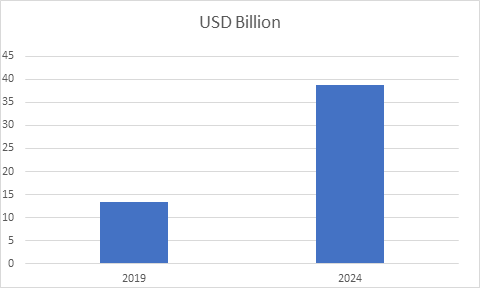
“North America to grow at the highest rate during the estimated period (2019–2024)”
The regenerative medicine market in North America is expected to grow at a rapid pace in the upcoming years. There has been a formidable increase in cell-based research activities in the past decade. Increasing research activities in the field of regenerative medicine and growing awareness of personalized medicine have also resulted in the establishment of stem cell banking and tissue engineering. North America has both public and private banks that store a defined number of cells and tissues.
Top Associations around the World:
International Society for Stem Cell Research; Australian Society for Stem Cell Research; Japanese Society for Regenerative Medicine; Korean Society for Stem Cell Research; Stem Cell Society Singapore; Stem Cells Australia; Taiwan Society for Stem Cell Research; The National Stem Cell Foundation of Australia; Israel Stem Cell Society; Danish Stem Cell Society; Euro Stem Cell; French Society for Stem Cell Research; German Society for Stem Cell Research; Norwegian Centre for Stem Cell Research; Stem Cell Network North Rhine – Westphalia; California Institute for Regenerative Medicine; New York State Stem Cell Science Program; New York Stem Cell Foundation; Stem Cell Network.
Worldwide Universities associated with stem cell research
Stanford University; Oxford University; Harvard University; Cambridge University; Yale University; King’s College London; University College London, University of California (UCLA).
Top Hospitals and clinics in the World:
St. Catherine Specialty Hospital, Omotesando Helené Clinic, Kokilaben Dhirubhai Ambani Hospital, Stem Cells21, The Melrose Aesthetic Centre, Charm - Center for Healing and Regenerative Medicine, Advanced Orthopedic Specialists, Caring Medical & Rehabilitation Services - Chicagoland Office, Darrow Stem Cell Institute, Heidelberg University Hospital, Personalized Regenerative Medicine, South Florida Bone Marrow / Stem Cell Transplant Institute, Beverly Hills Stem Cells, Aspen Institute for Anti ageing and Regenerative Medicine.
Industries Associated with Stem cell Research:
Cryo – Cell International; Cytori Therapeutics Inc.; Geron Corporation; Invitrogen; Aastrom Biosciences Inc.; Advanced Cell Technology; Athersys; International Stem Cell Corporation; Neuralstem, Inc.; Novocell; Osiris Therapeutics, Inc.; StemCells, Inc.
DISCLAIMER:
This Report was done only for the evaluation of the on-going research with the respective site. The content does not have any illegal or confidential data.







